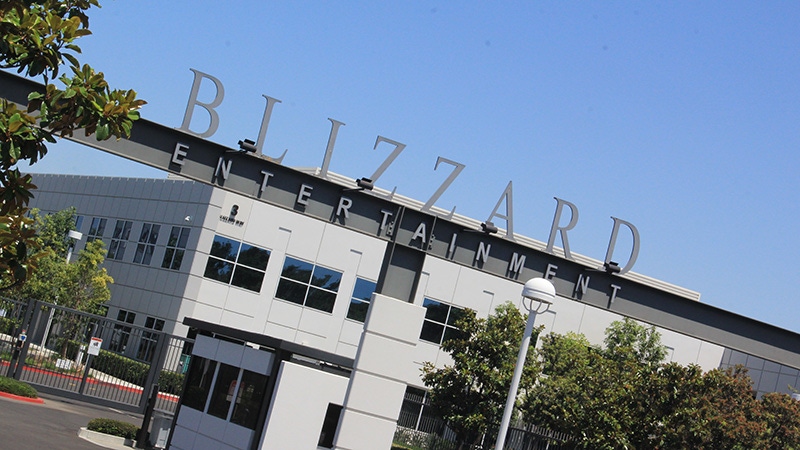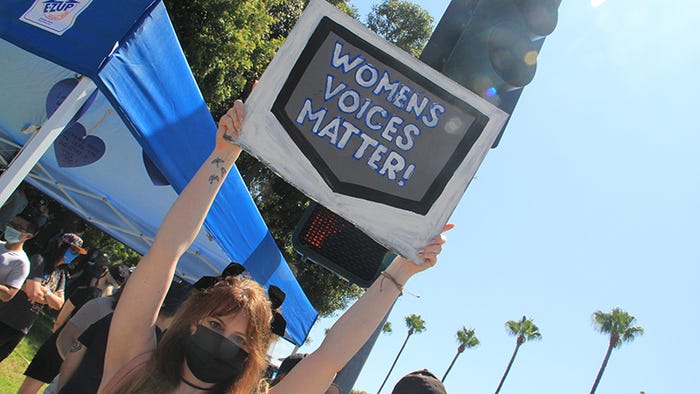Trending
Opinion: How will Project 2025 impact game developers?
The Heritage Foundation's manifesto for the possible next administration could do great harm to many, including large portions of the game development community.

The 2021 lawsuit filed by the California Civil Rights Department that accused Activision Blizzard of fostering a widespread culture sexual harassment, discrimination, pay disparities, and abuse has come to a close. The World of Warcraft and Call of Duty publisher will pay $55 million to settle the modified lawsuit, $45.75 million of which will be made available to impacted workers at the company between 2015 and 2020.
The finalized settlement also comes with concessions made by California's Civil Rights Department (formally the Department of Fair Employment and Housing). The settled suit no longer includes claims of sexual harassment at the company, meaning it only covers the previously stated allegations over discrimination and wage disparity.
In a statement to Game Developer confirming the settlement, an Activision Blizzard spokesperson praised the withdrawal of the "inflammatory" allegations, and said the company was "gratified" to reach an agreement with the Civil Rights Department.
"We appreciate the importance of the issues addressed in this agreement and we are dedicated to fully implementing all the new obligations we have assumed as part of it," the spokesperson continued. "We want our employees to know that, as the agreement specifies, we are committed to ensuring fair compensation and promotion policies and practices for all our employees, and we will continue our efforts regarding inclusion of qualified candidates from underrepresented communities in outreach, recruitment, and retention."
The settlement agreement includes written acknowledgements by the California Civil Rights Department that no court or independent investigation has substantiated "any allegations that there has been systemic or widespread sexual harassment at Activision Blizzard," or that the company's Board of Directors (including CEO Bobby Kotick) "acted improperly" with regard to the handling of any instances of workplace misconduct.
Sources speaking to The Wall Street Journal indicated the Civil Rights Department had initially hoped to secure a settlement closer to the value of its $100 million settlement that followed its lawsuit against League of Legends developer Riot Games. Activision Blizzard already agreed to pay $18 million to the Equal Employment Opportunity Commission to settle allegations of gender-based harassment and discrimination.
The conclusion of this lawsuit ends a two-year rollercoaster for Activision Blizzard, during which the company's share price dropped to a point where Microsoft decided to acquire the publisher for $68.7 billion. That in turn sparked a rollicking battle with government regulatory bodies across the Atlantic (which revealed many financial secrets about Microsoft and key competitor Sony Interactive Entertainment), but ultimately came to a conclusion in October 2023.
Though the State of California ultimately withdrew its accusations of the publisher's alleged mishandling of sexual harassment and abuse, the last two years have seen the departure of longtime Activision Blizzard employees accused of varying levels of abuse. Several employees also came forward with stories of alleged sexual harassment during their time at the company.
Most notably, Diablo IV game director Luis Barriga and lead level designer Jesse McCree were dismissed from the company in the weeks after the State of California filed its lawsuit. World of Warcraft designer Jonathan LeCraft was also ousted at the same time, and the game's senior creative director Alex Afrasiabi was accused of sexually harassing multiple women working at Blizzard during events like BlizzCon. Afrasiabi's conduct was apparently brought to the attention of then-president J. Allen Brack, who allegedly only took verbal action.

Image by Bryant Francis.
Treyarch co-founder Dan Bunting departed the company shortly before The Wall Street Journal published a detailed report on further accusations made against company leadership, which stated the publisher's human resources concluded he had committed sexual harassment. The same report detailed the ousting of longtime Blizzard chief technology officer Ben Kilgore over accusations of sexual harassment.
Shortly before this report, the company shared public details on the firing of 20 employees for alleged misconduct.
Afrasiabi left Blizzard Entertainment before 2021. Blizzard would later change the name of a minor World of Warcraft character who bore his name. It would also change the name of Overwatch character McCree in a similar move.
Some allegations first described by the State of California, such as raucous "cube crawls" in Blizzard's offices were corroborated by other employees at the company. Other notable allegations by the Civil Rights Department, such as the death of an employee by suicide, have faded from relevance following continued developments. The employees' family first filed a civil suit, but quickly withdrew it "with prejudice."
Activision Blizzard was not the only part in the lawsuit that faced intense scrutiny as processions played out. The California Civil Rights Department attempted to intervene with the EEOC settlement but was denied the ability to do so by a federal judge. Key employees at the agency left after purported pressure from the office of California Governor Gavin Newsom.
At one point, Activision Blizzard accused the California agency of unethical practices regarding a "conflict of interest" with regards to the Department's objection to the EEOC settlement.
As the lawsuit and merger process progressed, Kotick would become more defensive about accusations against Activision Blizzard and issued stronger and stronger denials about wrongdoing at the company.
This lawsuit also helped spark a labor movement at the company that began with organized walkouts and would eventually lead to unionization. Employee activism at the publisher continues to this day.
You May Also Like